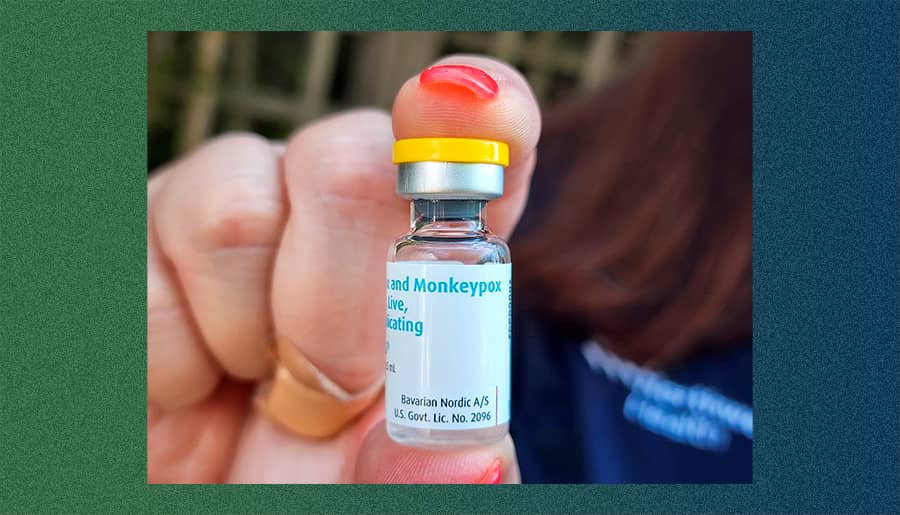Killer viruses have been in vogue for a while now. But I wish they’d all just stop doing their thing, aye. Outside of the classic COVID clusterfest, monkeypox (MPX) has been making some huge headlines. This is because it was classified as a Public Health Emergency of International Concern by the WHO, and now Australia’s getting in on the action. Here’s everything you need to know about this unfolding situation:
Monkeypox: A Communicable Disease Incident of National Significance
On July 28, Professor Paul Kelly, the Australian Government Chief Medical Officer, declared that monkeypox is a serious issue that’s impacting all of Australia. He’s even calling it a Communicable Disease Incident of National Significance. Kelly declared, “The decision to declare MPX a Communicable Disease Incident of National Significance was made under the Emergency Response Plan for Communicable Disease Incidents of National Significance, in consultation with the Australian Health Protection Principal Committee.”
However, Kelly also emphasised that the monkey situation isn’t on the same scale as the current COVID kerfuffle. He said, “It is important to note that although I have declared MPX to be a Communicable Disease Incident of National Significance, it is far less harmful than COVID-19 and there have been no deaths reported during the current outbreak outside of countries where the virus is endemic.”
How Many People Have Monkeypox in Australia?
As of when Kelly published this update, there were 44 cases. Most of these folks have been international travellers.
Kelly also noted, “Most cases of MPX in Australia have been among people aged 21 to 40 years. The experience internationally and in Australia to date is most cases have been among gay, bisexual and other men who have sex with men.”
“Although MPX is not usually considered a sexually transmissible infection, physical contact with an infected person during sexual intercourse carries a significant risk of transmission,” explained Kelly. He then went onto state, “Intimate physical contact such as hugging, kissing and sexual activities represent a risk of infection, with infectious skin sores being the likely mode of transmission.”
Related: Monkeypox Is a Global Health Emergency: So How Do You Get It?
Related: What Is a Centre for Disease Control, and Will Establishing One Help Australia?
Related: America Is Rolling Out a Monkeypox Vaccine — Should Australia Be Doing the Same?
Are There Monkeypox Vaccines in Australia?
The Australian Technical Advisory Group on Immunisation (ATAGI) has currently approved two vaccines to prevent monkeypox from hitting you. One of them being the ACAM2000, which, while being a single dose vax that works, might not be a good fit for everybody. This is because it can’t be given to severely immunocompromised people, pregnant folks, babies under 12 months of age, and people with active atopic dermatitis.
The other vaccine is called JYNNEOS and can be used by basically everyone, after a risk-benefit assessment obviously. JYNNEOS is administered in a two-dose schedule and has been labelled by the ATAGI as the preferred vaccine.
Who Can Get a Monkeypox Vaccine in Australia?
The ATAGI is recommending these vaccines for people who’ve been classified as a high risk monkeypox contact in the past 14 days, sex workers, and the people administering the ACAM2000 vax.
These vaccines are additionally being recommend for the men who have sex with other men that have a high risk of getting badly infected by monkeypox. The ATAGI considers the highest risk individuals to be people that have a high number of sexual contacts, live with HIV, recently attended any sex on premises venues, recently received an STI, or have gotten a vax recommendation from a service provider. It’s worth there’s some other specific circumstances that could put you in the highest risk category.
If you’re worried about getting monkeypox, talk with your GP.
Read more stories from The Latch and subscribe to our email newsletter.

